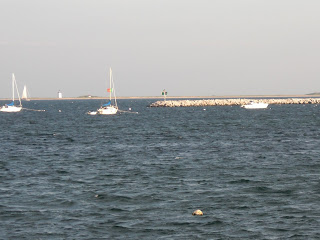 MP: Psalm 34; Isaiah 49:1-6; 1 Cor 4:1-16
MP: Psalm 34; Isaiah 49:1-6; 1 Cor 4:1-16EP: Psalm 96; Isaiah 55:1-5; John 1:35-42
We do not know all that much about St. Andrew. The most important thing we do know is that he was Simon's (named Peter by Jesus) brother. In John's Gospel, Andrew is one of two who first follow Jesus, and Andrew is the one who then brings Peter to Jesus.
Lesser Feasts and Fasts remarks today that Andrew did not seem to be part of the Jesus' inner circle, which consisted of Peter, James and John, although Andrew does appear in the Gospels more frequently than any others, besides the inner circle. Andrew's experience is so very typical of what happens in life: someone discovers something (or someone) and then introduces this to others, and others become more prominent.
And yet Andrew is not forgotten or cast aside. He is like the vast majority of us: those who open the way for others to exercise their gifts to the fullest extent. Not everyone can be a Peter. All of us can be like Andrew though, and open the door to those we know who need to become acquainted with Jesus. That is not a small thing.
jfd+
Copyright 2009, The Rev. John F. Dwyer. All Rights Reserved.












